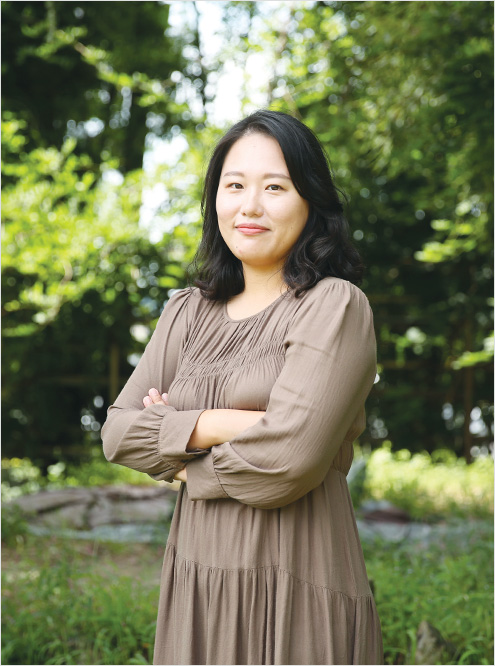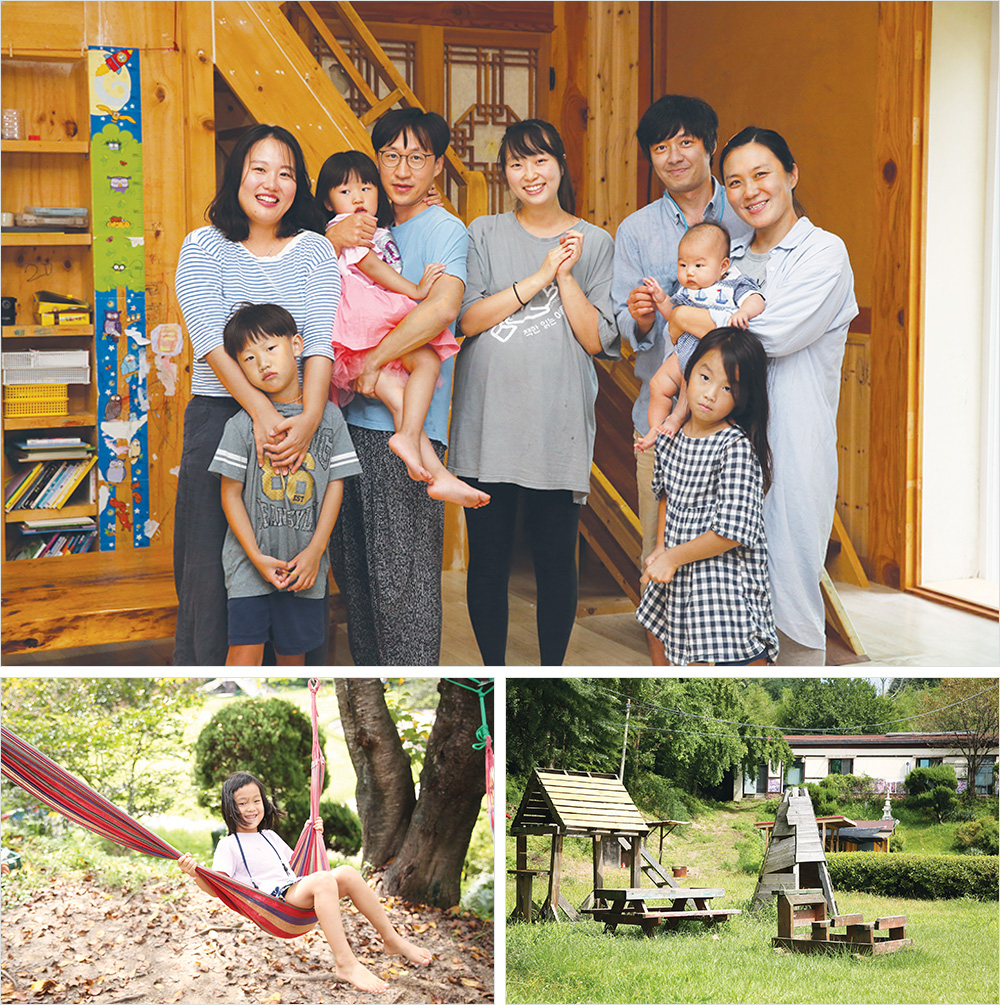People on the spot
Jo Suji, leader of ‘Sutgarak’, a parenting community
“It’s so natural that children are happy when their parents are happy”
2021.12.16
There is an African proverb that says "It takes a (whole) village to raise a child." ‘Sutgarak (Spoon),’ a parenting community in Gosan-myeon, Wanju-gun, is a community that strives to solve the hardships of raising children that most parents today are experiencing, through ‘cooperation’ and creating a happy society that is good for raising children. Currently, 15 families are participating and raising 19 children together, and Jo Suji, the mother of two children, is the leader.
Q. What kind of gathering is ‘Sutgarak’?
A. It was first organized in 2014, so it's been 8 years this year. As the title indicates, it’s a parenting community that raises children cooperatively. I don't know the details of its early days very well as I wasn't a member back then, but it is said that some returnees and new rural settlers to Gosan-myeon for farming took a joint parenting lecture and began to take care of their children in turns. Not only did they take care of children, but they also studied and had many discussions while thinking about what values they would raise their children with.
However, as they took turns taking care of the children in the members' houses, it just wasn’t a stable and regular co-raising environment. So while looking for a suitable joint parenting location, they were able to move into a place in 2015 because there was a vacant farmhouse restaurant at the Wanju-gun Local Economic Circulation Center. The name ‘Sutgarak’ originated from one of the members saying "I feel sorry that I only put a spoon on the prepared table."
Q. When did you join ‘Sutgarak’?
A. I lived in Seoul and came to Wanju four years ago. I was somewhat satisfied with my Seoul life and what I was doing, but my husband, who had long dreamed of returning to farming, felt so tired of the stress of his heartless work life, that I readily agreed to follow him. But when I came down, raising children was not easy for me. In the city, you can send children to a daycare center at the age of four, but it wasn't feasible in the countryside.
‘Since we've come to a rural area to live differently from the city, it would be better to raise our kid at home.’ We strived hard, but we soon got tired and stressed until some people around us recommended ‘Sutgarak.’
It hasn't been long since I became the leader. The child of the former leader, who has played a pivotal role as a representative for a long time, was old enough to enter elementary school, so I was selected as the new leader after the general meeting.

Q. It looks like you have a general meeting system as a decision-making body of the community.
A. There’s a general meeting once a month when all the parents have to participate. It is called ‘Damoim’ meaning all the members must attend it. Teachers who take care of our children also attend Damoim and communicate with parents with equal speech rights. They agree with the philosophy of ‘Sutgarak,’ so they can have the same level of open conversation as caregivers. And there is also an operating committee composed of teams taking charge of finance management, education, and facility management. As the joint childcare cooperative is not an official government-approved childcare institution, we don't receive any subsidies from the government. So members have to pay membership fees and even cover operating expenses through their own businesses. Apart from the general meeting or the operating committee, we hold monthly parent study meetings and conduct reading and joint learning in various fields such as education philosophy, feminism, and Enneagram, etc.
Q. There must be merits and demerits of joint parenting. What are the good points, and what parts are not so good?
A. Of course there are more merits. Above all, it's good to look at the child as he/she is and respect their individual circumstances, interests, and individuality. Children choose their own toys and play with them every day. Children are so happy to play while getting their clothes dirty in the spacious playground, whether it rains or snows. Sometimes they get hurt playing in the playground, but the parents really don't care. Not only children, but also parents are happy. Parents can also enjoy various hobbies in their clubs, learning foreign languages or doing sports, which seem to enrich their minds. Because my heart is relaxed, I don't get angry at children. It's a virtuous cycle in which children become happier because their parents are happy.
One thing we regret is a lack of diversity in child care. I hope the diversity of forms of child care can be recognized. Children attending daycare centers are provided with 700,000 won per month, and children who are raised at home or by a joint parenting system like us are provided with only 200,000 won in total. In the case of Northern Europe, if more than five families gather and raise children jointly, it is recognized and supported as a ‘semi-childcare facility,’ and I think Korea also needs to accept those various types of caregiving.






